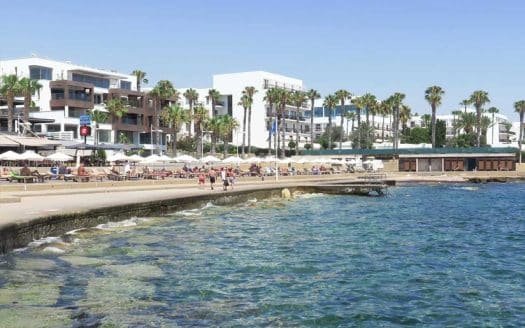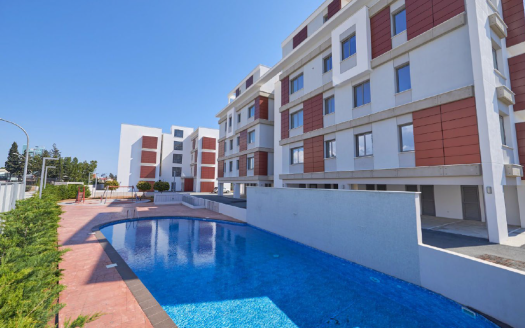A Comprehensive Guide to Purchasing Property in Cyprus for Foreign Investors
Cyprus has become well-known as a secure environment for property investments. The island offers modern infrastructure, a reputable legal framework, and attractive fiscal policies. Its proximity to major European markets and the favourable tax regime make the investment process straightforward for both EU and non-EU citizens. Buyers benefit from the country’s transparent procedures, ensuring that all transactions are legally sound and financially secure.
Legal Requirements for Foreign Investors
The legal framework in Cyprus is designed to protect both local and international interests. The processes differ slightly between EU and non-EU citizens. Clear regulatory measures help maintain market stability and ensure that buyers adhere to established standards.
For EU Citizens
EU nationals face minimal restrictions. They are permitted to purchase property under the same conditions as local citizens without the need for extra permits. This approach makes property investment straightforward and less bureaucratic for buyers from European Union countries.
For Non-EU Citizens
Investors from outside the EU must meet additional requirements. Third-country nationals are obliged to secure an acquisition permit from the Council of Ministers. The process involves the following steps:
- Submission of Form Comm. 145: The form, also known as the acquisition permit, must be completed after signing the sale agreement.
- Documentation: Applicants need to provide a clean criminal record along with proof of sufficient financial means.
- Processing Time: The approval process usually takes between one and three months, although possession of the property may commence immediately after the sale agreement.
These measures ensure that all buyers meet the necessary legal and financial criteria before acquiring property.
The Step-by-Step Process of Buying Property in Cyprus
The process of purchasing property in Limassol is methodical and requires careful planning. Every stage, from initial reservation to final transfer of title deeds, is clearly regulated.
- Property Reservation
The first step involves reserving the property by paying a reservation fee. Typically, the fee ranges between €5,000 and €10,000. This payment removes the property from the market temporarily and signals the buyer’s commitment. A reservation fee provides time for both parties to organise the necessary documents and secure legal advice.
- Engaging Legal Representation
Securing an independent lawyer is highly recommended. A local lawyer performs several critical functions:
- Verification of Title Deeds: Confirming that the property has clear ownership.
- Due Diligence: Checking for any encumbrances or irregularities in planning and construction permits.
- Negotiation Assistance: Helping to draft and finalise the sale agreement in a way that safeguards the buyer’s interests.
Legal representation ensures that all documentation is thoroughly examined, thus minimising the risk of future legal complications.
- Finalising the Sale Agreement
Once the reservation is confirmed and legal checks are complete, the sale agreement is prepared. This document details the terms and conditions of the property purchase. The agreement is then registered with the Land Registry Office, which is a critical step in legitimising the transfer of ownership. Registration of the sale agreement ensures that the buyer’s rights are officially recorded.
- Council of Ministers Approval for Non-EU Buyers
For investors who are non-EU citizens, the application for an acquisition permit is submitted to the Council of Ministers. Although buyers can take possession of the property immediately after signing the sale agreement, this approval is a mandatory legal requirement. The approval process typically takes between one and three months, during which the authorities verify the provided documentation and ensure compliance with national regulations.
- Transfer of Title Deeds
The final stage in the property acquisition process is the transfer of title deeds. After all taxes are settled and all documentation is in order, the title deeds are transferred into the buyer’s name. This step formally confirms the change in ownership and secures the buyer’s legal rights to the property.
Transfer Fees
Transfer fees are calculated as a percentage of the market value as determined by the Department of Lands and Surveys. The fee typically ranges from 3% to 8% of the property’s value. Buyers should be prepared for this cost, which forms an integral part of the overall investment.
Stamp Duty
Stamp duty is levied on the sale agreement. The duty is applied to amounts exceeding a specified threshold, with rates commonly set between 0.15% and 0.20%. This tax must be paid at the time the agreement is executed, making it an unavoidable expense in the property purchase process.
Value Added Tax (VAT)
VAT applies to new properties. The standard rate in Cyprus is 19%, although a reduced rate of 5% may be available for primary residences under certain conditions. Investors should verify whether their intended property qualifies for the reduced rate, as this can significantly affect the overall cost.
Local Authority Charges
Additional fees may include municipal taxes, sewerage charges, and in some instances, levies for property insurance when you buy house in Limassol. These charges vary depending on the local authority and the specific property. A thorough understanding of these costs is crucial for accurately estimating the total investment.
Capital Gains Tax
When selling the property in the future, a capital gains tax of 20% may be applicable on any profits made. Prospective buyers should consider this eventual expense when evaluating the long-term financial implications of their investment in real estate limassol.
The Golden Visa and Residency Programme
Investing in property can also provide an avenue for obtaining residency in Cyprus. The golden visa programme is designed to attract foreign investment by linking property purchase with residency rights.
To qualify for permanent residency, an investment of at least €300,000 in new apartments for sale Limassol is typically required. This figure does not include VAT, which may be applicable. Meeting the investment threshold grants the buyer eligibility for a residency permit, which comes with its own set of benefits.
Benefits of Residency
Residency through property investment such as house for sale Limassol offers several advantages:
- Schengen Area Travel: Holders of the residency permit enjoy visa-free travel within the Schengen Area.
- Tax Treatment: Investors may receive favourable tax treatment on their worldwide income.
- Long-Term Opportunities: The permit provides a pathway to long-term settlement, although citizenship remains a separate process that requires a longer period of residence, typically around eight years.
These benefits enhance the overall appeal of Cyprus as a destination for foreign property investment.
Final Thoughts
The process of acquiring property and flats for rent Limassol is supported by a well-defined legal framework and a series of regulated steps that ensure both transparency and security. Foreign investors interested in apartments to rent in Limassol must understand the specifics of the property acquisition process, including the varying requirements for EU and non-EU citizens, the detailed steps involved in registration, and the financial commitments associated with taxes and fees.




